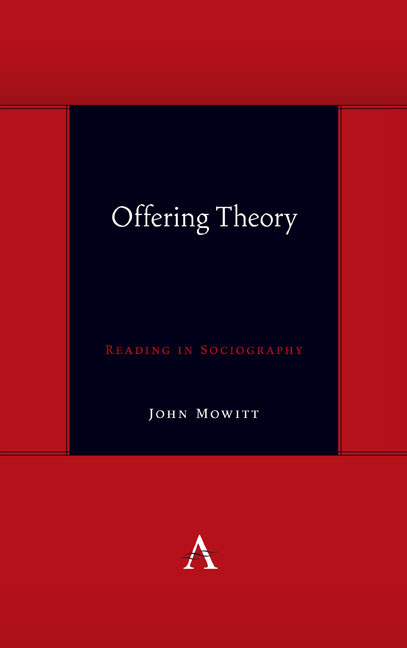Book contents
- Frontmatter
- Dedication
- Contents
- Acknowledgments
- The Pretext
- Introduction: Theory in Limbo
- 1 Queer Resistance: Foucault and the Unnamable
- 2 Stumbling on Analysis: Psychoanalysis and Everyday Life
- 3 Strangers in Analysis: Nationalism and the Talking Cure
- 4 “Jamming”
- 5 WWJD?
- 6 What Said Said
- 7 Apart from Theory
- 8 Conclusion: Theory Is Out There
- References
- Index
- Frontmatter
- Dedication
- Contents
- Acknowledgments
- The Pretext
- Introduction: Theory in Limbo
- 1 Queer Resistance: Foucault and the Unnamable
- 2 Stumbling on Analysis: Psychoanalysis and Everyday Life
- 3 Strangers in Analysis: Nationalism and the Talking Cure
- 4 “Jamming”
- 5 WWJD?
- 6 What Said Said
- 7 Apart from Theory
- 8 Conclusion: Theory Is Out There
- References
- Index
Summary
The matter this chapter seeks to agitate is evocatively miniaturized in the following line from George Eliot's The Lifted Veil: “I was no sooner in Bertha’s society again, then I was as completely under her sway as before” (Eliot 1999, 20). Although I have long wondered about the idiomatic expression “under one's sway,” it is the apparent substitution of “society” for “company” that caught my ear. Put this way, of course, it sounds like what concerns me bears on the work of metaphorization, or perhaps English usage in Britain during the nineteenth century, but in fact what is at once striking and suggestive in this sentence is something else. Namely, the way the substitutability of “society” for “company” prompts one to probe “company” for insight into the specifically social character of society. The productivity of such a gesture will become clearer in the course of these considerations, but for now it will suffice to stress that my curiosity regarding the friction within Edward Said's work between history and geography, a friction initiated by the theoretical impact of the concept of the text on that of context, concerns itself with a disciplinary displacement that, if it has a corollary in the sociology of literature (or culture more broadly), may well be figured in what I am here proposing to call sociography. Such, in any case, is the argument that matters most in what follows.
If, has been proposed, the sacrificial character of Theory has something fundamental to do with its having outlived its moment, its context (see the Introduction), then one of the founding gestures of the institutional thought experiment that is cultural studies, namely, the gesture of “contextualization,” calls out for consideration in any effort to think the when and where of Theory. What makes “contextualization” a topic of common concern is that cultural studies from its very inception— and I’ll have more to say about this shortly— has distinguished itself from the mere study of culture, whether anthropological or philosophical, by insisting upon an essential relation between what Marx memorably called das Leben (life) and das Bewusstsein (consciousness). Put differently, contextualization, the analytical gesture of situating a text in its sociological or historical context so as to determine its sense, is not simply something cultural studies does, it is implicated in what it means to do cultural studies.
- Type
- Chapter
- Information
- Offering TheoryReading in Sociography, pp. 141 - 162Publisher: Anthem PressPrint publication year: 2020



